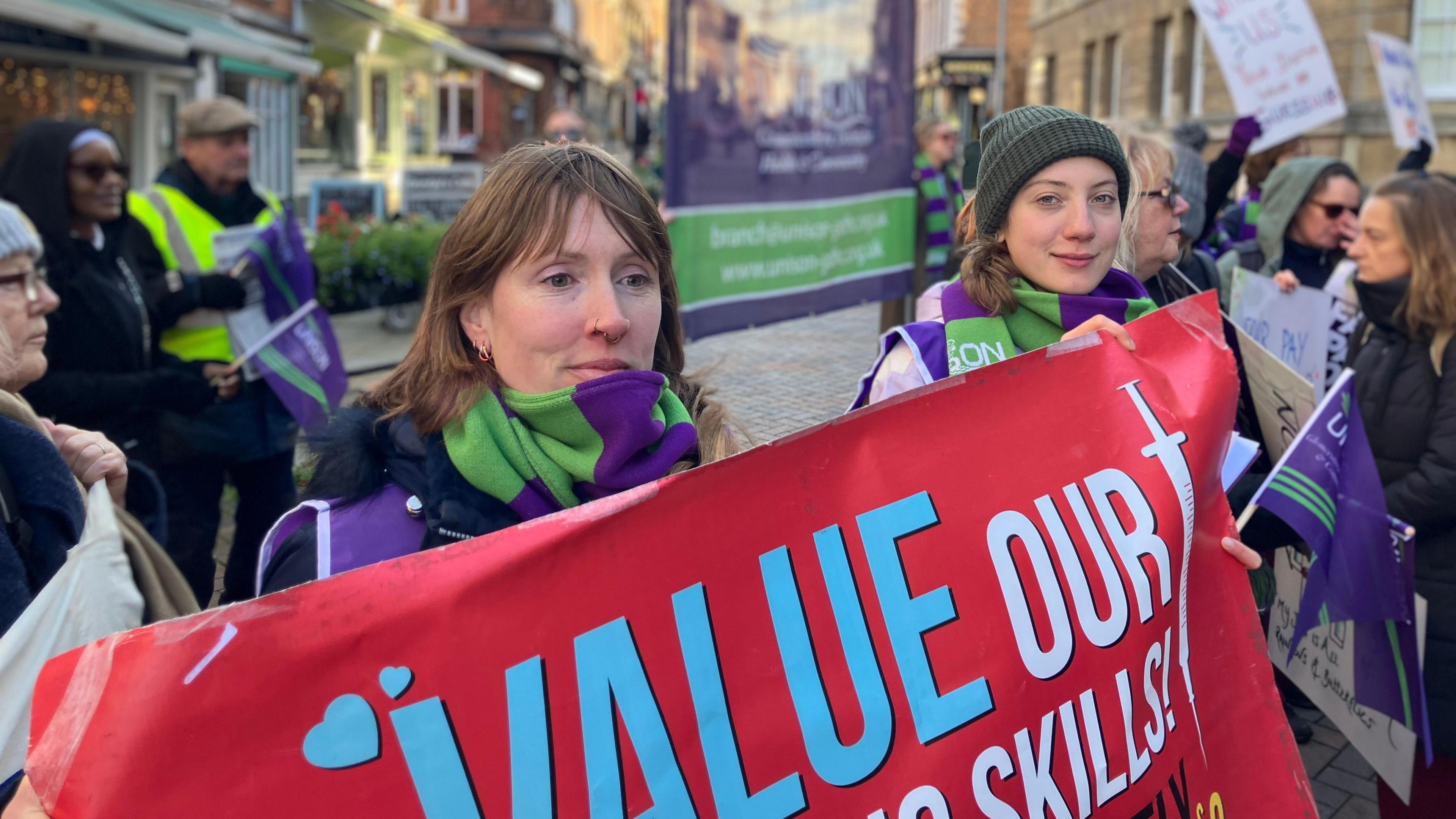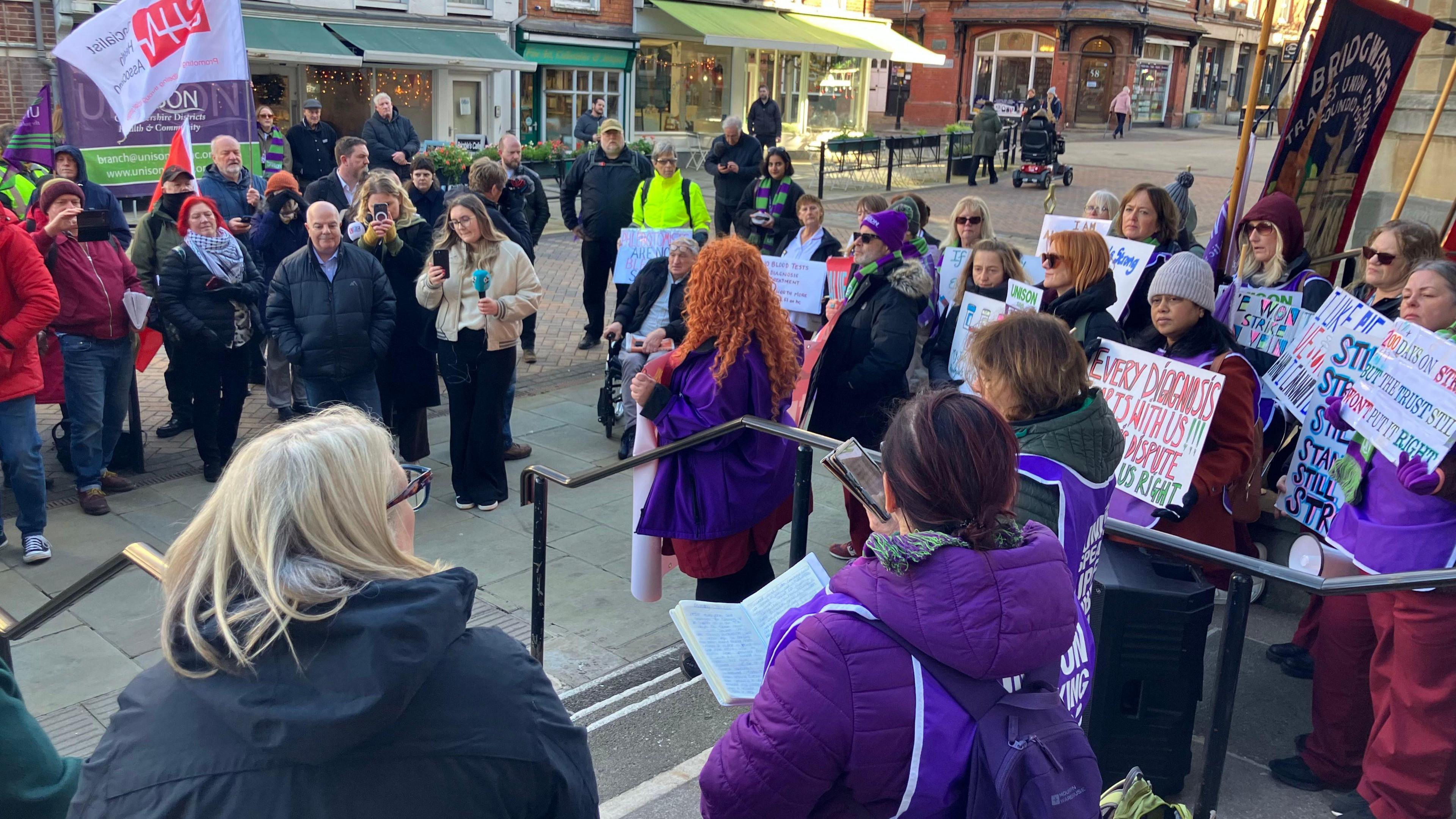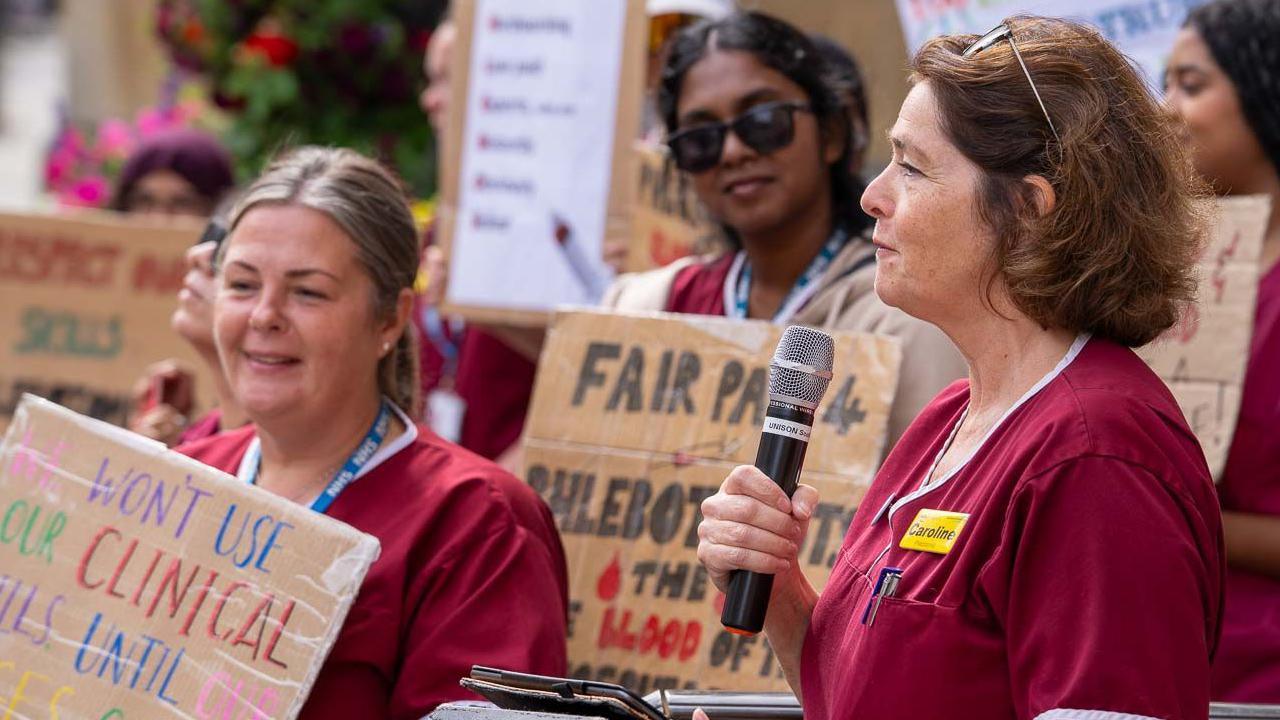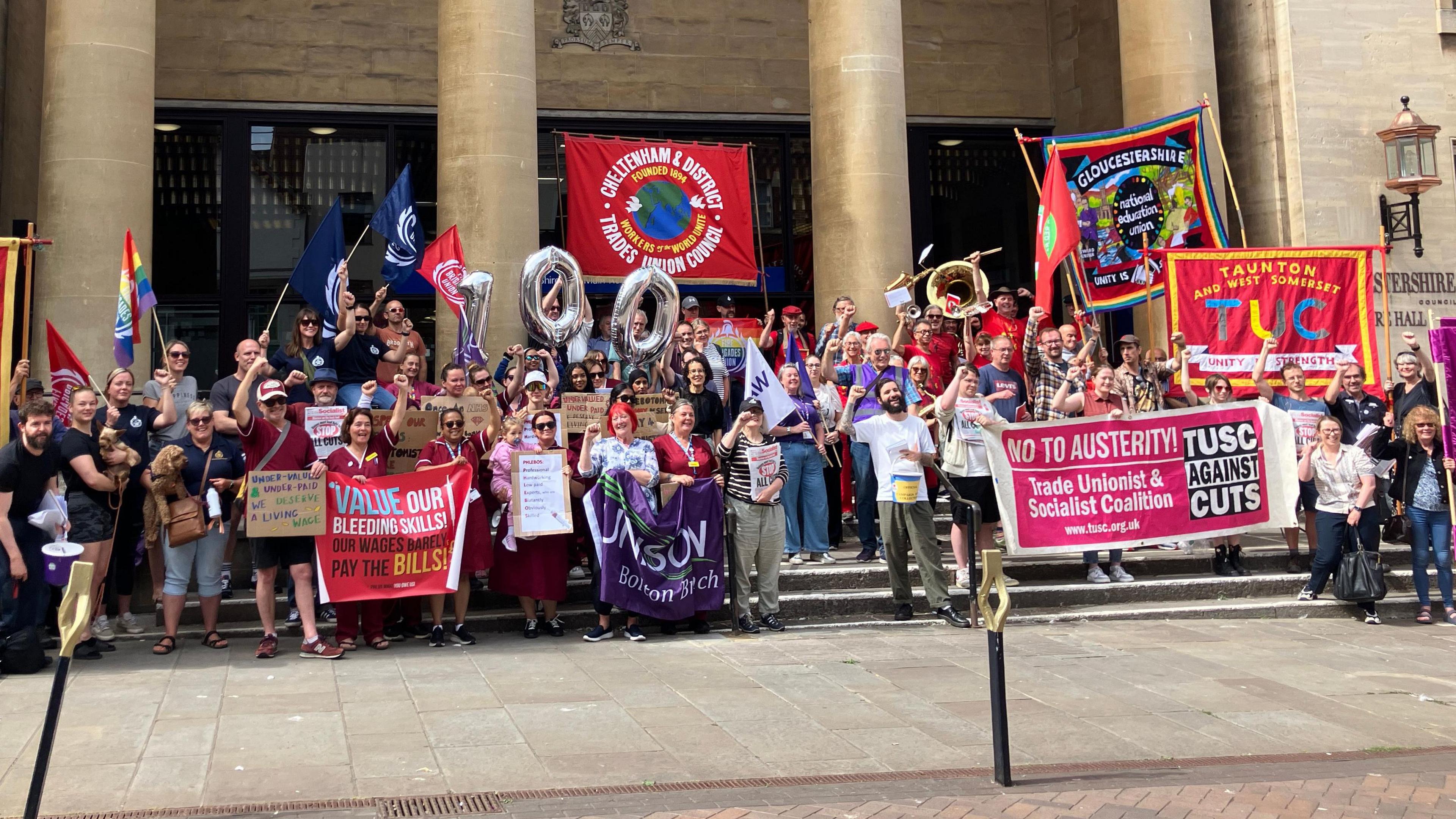Phlebotomists mark longest strike in NHS history

Laura Pargeter (left) said she misses her patients at Cheltenham General Hospital, but wants better pay
- Published
A phlebotomist who is taking part in the longest strike in NHS history says she wants more financial stability for her family.
Laura Pargeter, who takes and handles blood samples at Cheltenham General Hospital, said she misses her job and patients but her band two pay means she has to "meticulously plan" food shops and breakfast clubs.
Phlebotomists in Gloucestershire started industrial action in March, demanding band three pay. A rally has been organised outside Shire Hall in Gloucester to mark the 236th day of action.
A Gloucestershire Hospitals NHS Foundation Trust spokesperson said it has made "a number of offers" to trade union Unison and the phlebotomists.
Ms Pargeter said she felt phlebotomists are "greatly undervalued by the board of directors" at the hospital trust.
"It's affected everybody emotionally, financially," Ms Pargeter said.
"I'm a mum-of-two, I'm a hard worker, we all go out and earn our money and we love the job we do."
Ms Pargeter said she and her colleagues "really miss" their regular patients and "just want to get back to work".
"We just want the recognition that we deserve for the work that we do at the hospital," she said.
"It's a specialist job and it's integral to the patient's journey and we want the recognition and the deserved pay band for that."

Phlebotomists in Gloucestershire have been striking for 236 days, or eight months
Christina McAnea, Unison general secretary, said: "It takes a lot of skill to put patients at ease and get them through an experience that makes many people go weak at the knees.
"But these essential workers are unfairly being paid the lowest rate in the NHS. That in no way reflects the very skilled work they do."
A spokesperson for Gloucestershire Hospitals NHS Foundation Trust said it had put forward a higher banded role, more pay, back pay to April 2025, better training, and better facilities during its several meetings with Gloucestershire phlebotomists and Unison.
"We believe these are all fair and positive offers, but Unison has rejected them.
"We have also offered for the job role to be reviewed by a national independent panel, and the Trust would be bound by the outcome.
"In other words, we would pay a Band three if this was the outcome, this has also been rejected by Unison."
Get in touch
Tell us which stories we should cover in Gloucestershire
Follow BBC Gloucestershire on Facebook, external, X, external and Instagram, external. Send your story ideas to us on email or via WhatsApp on 0800 313 4630.
Related topics
- Published12 October

- Published4 July
